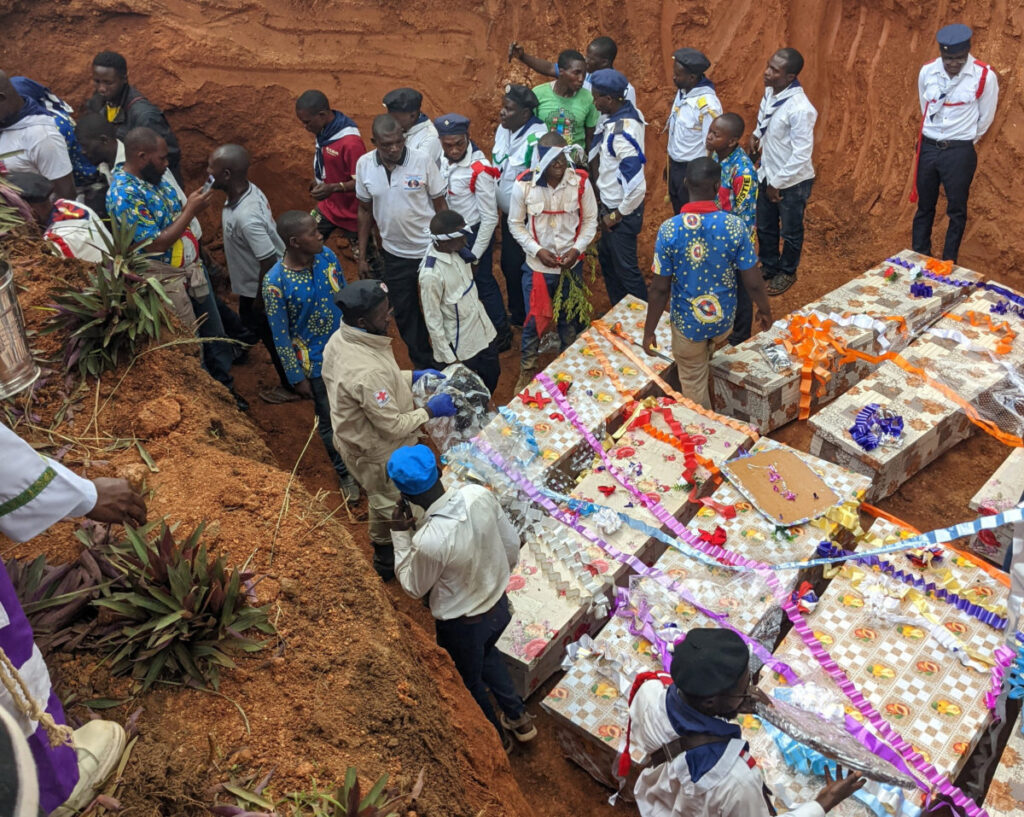
A deadly attack struck a church in northeast Democratic Republic of Congo during the night, leaving many worshippers dead. Fighters from an IS-linked militant group carried out the assault while faithful attendees gathered for a vigil. More than 40 people lost their lives, and churches across the region are now on high alert.
Worshippers met at a church in Komanda when fighters from the Allied Democratic Forces stormed the building. They attacked with machetes, causing chaos as people tried to escape. Children, women, and men were among the casualties. The incident shocked local communities and faith leaders, raising urgent concerns about security near places of worship.
Local armed forces reported about 40 people were killed in one blow. Several others suffered serious injuries. Shops nearby were looted and set on fire, leaving families to mourn both loved ones and property losses. The militant group behind the attack operates in eastern Congo and has ties to IS’s Central African Province. It frequently targets civilians regardless of religion, aiming to spread fear through attacks on soft targets.
Security forces said militants acted in retaliation, hoping to divert attention from a joint military operation by Uganda and Congo. Soldiers pledged to hunt down the group until they reach their last hideouts. They called on communities to stay vigilant and report suspicious activities. The army spokesman urged people to remain alert, emphasizing that vigilance is vital to prevent further tragedy.
The UN peacekeeping mission in Congo condemned the attack as a violation of human rights and humanitarian law. They declared that targeting peaceful civilians at places of worship is unacceptable. The mission stressed the need to uphold international protection standards. They also demanded justice for the victims, insisting perpetrators must face accountability. The deputy chief described the violence as appalling and called for stronger protection around religious sites.
This attack happened in mineral-rich Ituri province, a region long plagued by conflict and armed groups vying for control. Rebel factions have operated there for decades, displacing many residents. Komanda lies near contested territories and has suffered repeated attacks recently. A violent resurgence earlier in July claimed dozens of lives nearby, and this latest assault adds to the mounting toll.
Local residents expressed deep fear and grief. They said they lost more than loved ones—they lost their sense of safety in daily life. Many now avoid attending church and public gatherings. They demand better security and protection for faith leaders and places of worship. Some communities have begun organizing local watch groups and are calling for military patrols to guard vulnerable sites.
Faith leaders urged national and international partners to strengthen protection efforts and support trauma relief for survivors. They also requested humanitarian aid, medical care, and psychological support for injured worshippers and grieving families. Such help, they believe, will heal wounds and rebuild trust within communities.
The Congo church attack also highlights broader regional threats from IS affiliates in Africa. Researchers note that nearly 90 percent of IS-linked attacks now occur on the continent. Groups tied to IS have expanded rapidly across Congo, Mozambique, and neighboring states. Analysts warn counterterrorism efforts must adapt to these evolving threats to prevent further escalation.
Regional governments plan joint operations to clear militants from border zones. They emphasize intelligence sharing and coordinated actions. Since 2021, Uganda and DRC have worked together to combat the Allied Democratic Forces and reduce armed violence. They hope recent operations will prevent future tragedies.
Authorities will launch investigations into the Congo church attack in the coming days. Families expect legal proceedings to follow. Security agencies plan to review protection protocols for religious venues and strengthen patrols around vulnerable settlements. Officials vow to target those responsible and dismantle their networks.
This tragic event serves as a grim reminder that violence hits civilians hardest. The Congo church attack shows that places of worship remain vulnerable in conflict zones. It underscores the need for stronger safeguards, improved intelligence, and local resilience. Survivors and community leaders hope this tragedy will spark action and lasting change.
In summary, a militant group linked to IS attacked a church vigil in Komanda, killing over 40 people and injuring many more. The assault shocked local and international observers and raised urgent questions about protecting faith communities in eastern Congo. The keyphrase “Congo church attack” reflects both the violence endured and the pressing demand for justice, security, and accountability.

